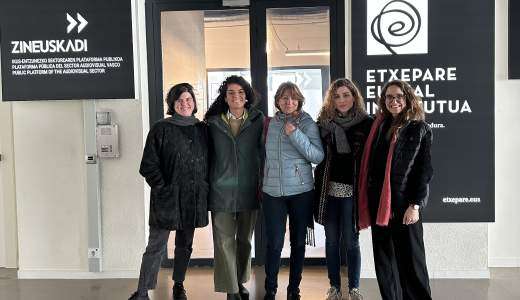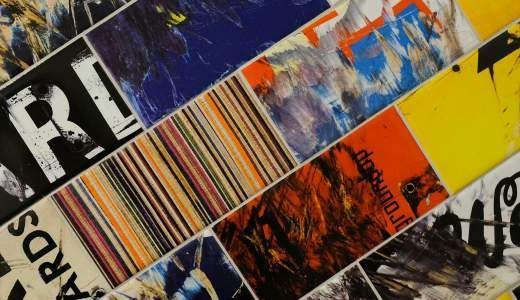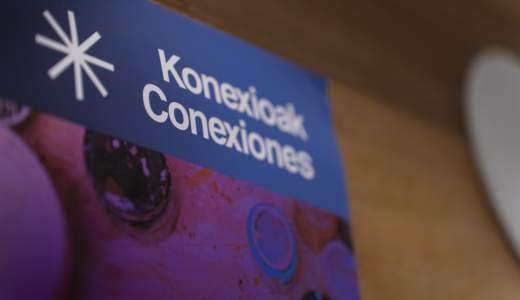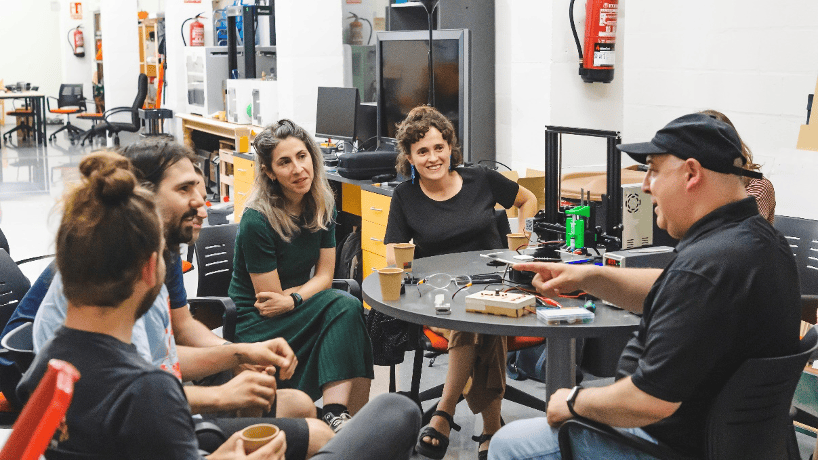The Lascaray Research Centre at the Faculty of Pharmacy of the University of the Basque Country (UPV) and the Álava Open Innovation and Creative Transfer Centre, Hibridalab, have led the research project on a low-cost 3D bioprinter that promises to transform artistic creation in the Basque Country. Open3DBio has been funded by the KSIgune Connections 2023/24 call.
The low-cost 3D bioprinter for the cultural and creative sector is an innovative project offering technology that is able to create 3D structures with biocompatible materials, opening up a range of possibilities in the design of works of art, interactive installations and innovative prototypes. As it is affordable, this bioprinter democratises access to cutting-edge technologies, enabling artists and creative staff with limited resources to materialise their ideas in unprecedented ways.
3D bioprinting is an example of the convergence of advanced technology and artistic creativity. Artists from the Basque Country can create complex and detailed sculptures that are impossible to create using traditional methods, and explore new forms of expression by integrating biological elements into their works. It can be used in sub-sectors such as fashion, crafts, plastic and performing arts, gastronomy and audiovisuals.
This low-cost bioprinter facilitates the creation of living works of art that interact with their environment, thus enhancing artistic innovation. It also transcends the cultural and creative sectors, as this low-cost bioprinter can be used by other sectors such as science, which is a major breakthrough because, until now, this type of technology could only be used by entities with large budgets. The 3D bioprinter is open source, with an easily accessible construction manual.
Impactful collaboration
Hibridalab has led the development and construction of a 3D bioprinter based on open-source hardware and software, providing the entire research community working on the intersection of art, science and technology with a reliable and convenient tool to carry out studies and research on responsible tissue.
The Lascaray Research Centre at the Faculty of Pharmacy of the University of the Basque Country (UPV) has played a key role in this project. Its expertise in biocompatible materials and printing techniques has significantly improved the functionality and precision of the bioprinter. Thanks to this collaboration, materials suitable for artistic applications have been secured, thus guaranteeing safety and sustainability.
Finally, the support of KSIgune has been crucial to the development and success of this project. KSIgune offers a supportive ecosystem and collaborative environment that has enabled the project to access a network of experts, educational resources and funding opportunities that have been essential to the development of the bioprinter, enhancing the synergies between technology and art, its impact and its potential for innovation.
---
Article author
Mr.Q, Fabmanager of Hibridalab, Álava Open Innovation and Creative Transfer Centre. Co-investigator of the Open3DBio project.
---
More information
To learn more about the projects of the KSIgune Connections 2023/24 call, go to the section Connections.
To apply for the 2024/25 call, click chere.
Current issues related news
-

Women in animation: Residency of the Euroregional Green Audiovisual Hub
ksiGuneFrom 3 to 21 March, the scriptwriters Laura Ibáñez, Esther Vital and Marion Moreau took part in the Euroregional support programme to continue the development of their audiovisual projects in…
-

Ruth Mayoral: ‘We are designing other forms of collaboration between education centres and CCIs’
ksiGuneInspired by the cluster idea and its important tradition in industry in the Basque Country, the main particularity of the KSIgune cluster lies in the fact that what it brings together is not…
-

KSIgune has selected 10 new projects with the call Connections
ksiGuneThe transfer between Higher and University Education and the cultural and creative sectors in the Basque Country continues to grow thanks to a new collaboration between 10 educational and/or research…

